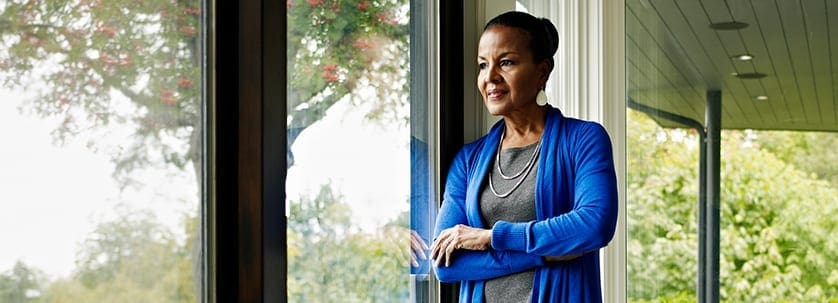Let’s talk about your home. It’s the place where you’ve made countless memories, celebrated holidays, created longstanding traditions, and maybe even raised a family. But as you settle into retirement years, your home can become even more—a welcomed source of cash flow.
A Home Equity Conversion Mortgage (HECM) —also known as a reverse mortgage—allows you to tap into a portion of the equity in your home to use as you wish. With an additional source of cash flow, you’ll improve your income and have more cash available to do more of the things you love.
But like any other loan, there are some qualifications that must be met to be eligible.
Let’s start with the most obvious – home qualifications for a reverse mortgage.
Type of Property
When it comes to the HECM, you first need to see if your home property qualifies. According to the US Department of Housing and Urban Development (HUD), the most common type of property eligible for a reverse mortgage is a single-family home. However, if your property is a multi-family home, you may still qualify—as long as one of the units is your primary residence.
Other eligible property types for a reverse mortgage include manufactured homes and HUD-approved condominiums. If you live in one of these types of dwellings, you’ll want to check the Federal Housing Administration’s (FHA) website as well as HUD to confirm your residence is eligible.
Now that we’ve covered the eligible property types for a reverse mortgage, it’s important to note the types of homes that don’t qualify. Since your property must be considered your primary residence, vacation homes and secondary homes do not qualify for the reverse mortgage loan. In addition, homes on income-producing land, such as a farm, are not eligible.
Primary Lien
A reverse mortgage loan must be the primary lien on your home to qualify. As such, you must either own the home outright or have a low balance remaining on the home when applying for a reverse mortgage. If approved, the reverse mortgage proceeds are first used to pay off an existing forward mortgage, eliminating monthly mortgage payments. The reverse mortgage then becomes the primary lien on your home. As you draw on the equity in your home with the reverse mortgage, interest will accrue on the loan, causing the balance to increase over time.
Occupancy Requirements
As previously noted, in order to be eligible for a reverse mortgage, the home must be your primary residence. This means you must spend the majority of a calendar year at this residence—at least 183 days annually. In fact, every year, you are required to certify in writing that the home continues to be occupied as your primary residence. And if you don’t, there are consequences. If you are found to be absent from your home for the greater part of the year for a non-medical reason or are absent for more than 12 months at a time for healthcare purposes, your home could be at risk of foreclosure.
Taxes and Insurance Payment
It’s no secret that homeownership comes with responsibilities, with two of the biggest being taxes and insurance. To qualify for a reverse mortgage, you must remain current on property taxes, homeowners insurance, and other mandatory obligations—including HOA or condominium fees. Prior to closing, your lender will conduct a financial assessment to determine the best way to pay for these ongoing expenses. Whether you have enough money saved already or agree to set aside a portion of the reverse mortgage proceeds to cover them, you are required to pay property charges, taxes, and insurance on time.
Property Condition
Finally, one of the most important property requirements for a reverse mortgage is the condition of your home. As a borrower, you are responsible for maintenance and keeping your home in good repair. If your house does not initially meet required property standards, the reverse mortgage lender will tell you what repairs need to be made before you can become eligible for the loan.
Today’s homeowners ages 62 and older own over $11 trillion* in housing wealth—are you tapping into your share? The more equity you have in your home, the more likely it is that you can leverage reverse mortgage proceeds to supplement your income, cover healthcare expenses, or take a trip.
Want to see how much equity you can tap into? Check out our reverse mortgage calculator to see how much you could qualify to receive. For more information, contact the Longbridge team today.
